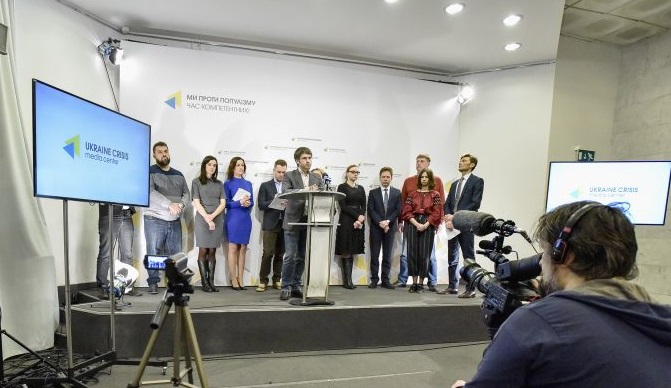On 29 June, a historical turn for Ukraine's key unreformed area, the judiciary, took place. Lawmakers voted for a crucial bill, including a critical amendment giving hope for cleaning corrupted Ukrainian courts. This is expected to happen through a transparent procedure of selecting a key body of judicial self-government which deals with selecting and assessing judges.
There are two bodies of judicial governance responsible for forming and cleaning the judicial corp - the High Qualification Commission of Judges (HQCJ) and the High Council of Judges (HCJ).
The former was disbanded after the first attempt of president Volodymyr Zelenskyy's judicial reform in 2019. It has not been formed until nowadays.
The bill 3711-d adopted on 29 June is a child of the heated discussions which lasted for almost a year. In these discussions the HJC, which has a final say in forming the judicial corps, was the force standing for preserving the status-quo in the judiciary. Civil society, which has fought for real judicial reform since the end of the Euromaidan Revolution, referred to the HCJ as a core of the judicial mafia.
In this fight, President Zelenskyy has been balancing between the two, on the one hand trying to preserve the status-quo and prevent changes, on the other hand, to promise that Ukraine would stand to its international obligations as real judicial reform has been part of these obligations.
Bill 3711-d foresaw forming a new HQCJ. But the key question was who would do the forming.
Ukraine already knows how the effective procedure would look -- international experts having a crucial role should take part in the process. This formula already worked and proved its effectiveness when in 2018, the High Anti-Corruption Court, the final link in Ukraine's new anti-corruption infrastructure was created. Back then, civil society insisted on the participation of international partners in the process. Society did not consider unreformed Ukrainian bodies trustworthy -- there was the risk that they would select corrupt judges. But the participation of international experts and close attention of Ukraine's international partners to the process bore fruit - after almost two years of the High Anti-Corruption Court’s work, top-corrupts of the country have finally started to be punished.
Why post-Euromaidan anti-corruption reform in Ukraine is still a success
Therefore, in the question of reforming the HQQJ, leading NGOs in the field and Ukraine's international partners strongly supported giving international experts a decisive role.
Their participation was foreseen by bill 3711-d. However, the bill did not provide them with the key role. Instead, the unreformed HCJ was given a final say.
Amendment #453 was called to change it. Until the very last moment, it was unclear whether the lawmakers support it and give the real judicial reform a chance, or would lead the field into a corruption abyss for a few more years.
Eventually, the MPs first supported the key amendment and then the bill in general.
With the launch of the HQCJ Ukraine will be finally able to fill the gap of lack of 2000 judges.
At the same time, lawmakers did not support the amendments which envisaged that the decision on the final squad of the HQCJ could have been made by the competition commission without the participation of the unreformed HCJ at all.
“According to the draft law, the competition commission is obliged to submit 32 candidates to the HQCJ for consideration by the HCJ, and the latter is to elect 16 members of the HQCJ. It is obvious that the corrupt and unreformed HCJ will choose the most loyal candidates for the HCCJ, not the most worthy ones. The task of reforming the HCJ - also, with the crucial role of international experts -- is becoming extremely important for the viability of judicial reform,” Mykhaylo Zhernakov, the head of the DEJURE Foundation, leading NGO in judiciary explained.
As well, adopting the bill on the HQCJ is only one half of the process of its reform; the next half concerns how it will be implemented.
Read also:
- Reforming judiciary in focus of Ukraine’s first high-level non-oligarchic international conference
- Saving Ukraine’s Anti-Corruption Court: international experts filter candidates, facing roadblocks from old system
- How Ukraine can tame its “judicial mafia”
- Zelenskyy dismisses two Constitutional Court judges, deepening constitutional crisis
- Why post-Euromaidan anti-corruption reform in Ukraine is still a success
- Despite second attempt at judicial reform, political decisions rule Ukrainian courts





